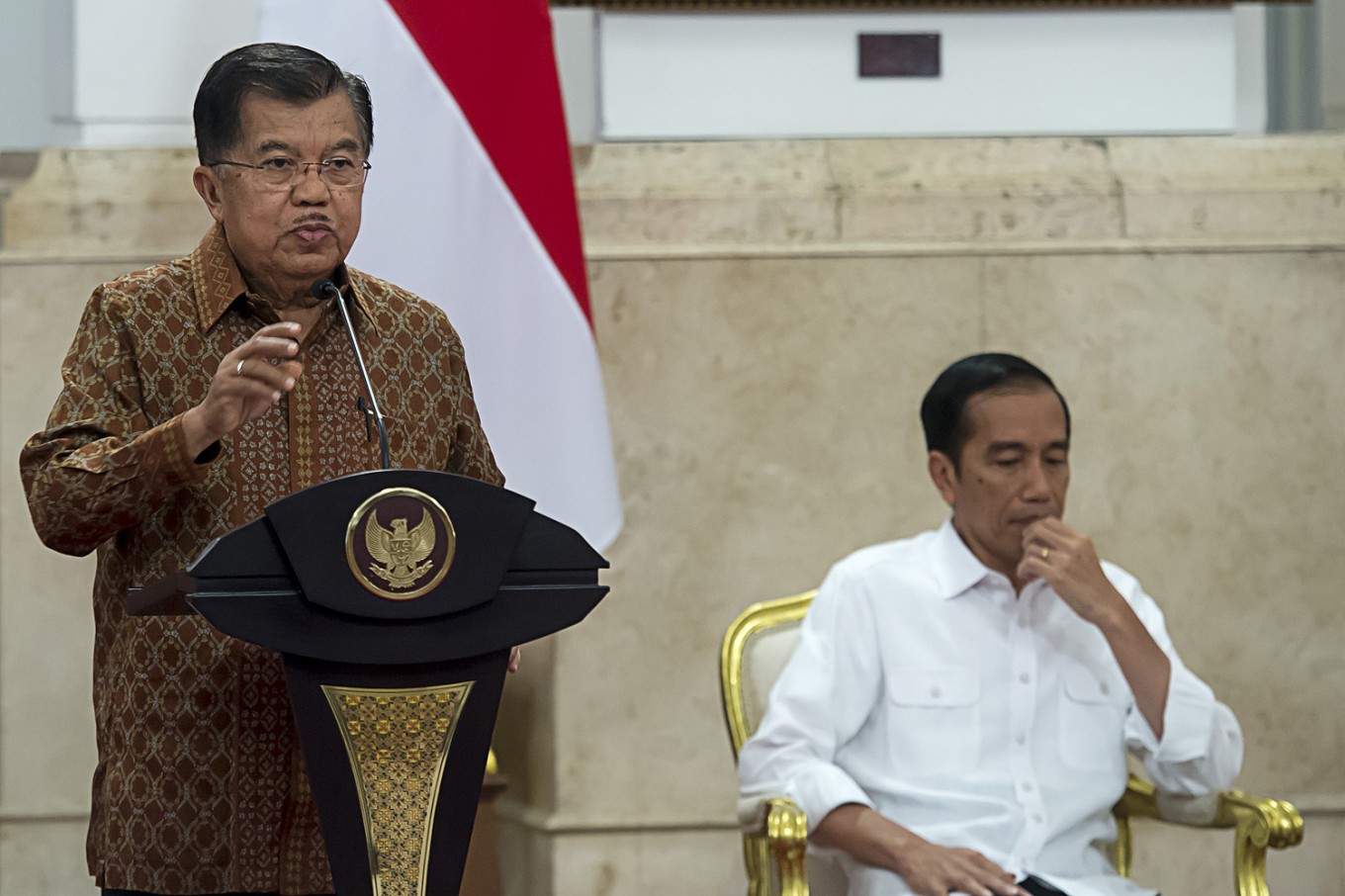Popular Reads
Top Results
Can't find what you're looking for?
View all search resultsPopular Reads
Top Results
Can't find what you're looking for?
View all search resultsSecurity Council — stage for Indonesia’s global ambitions
When Indonesia joins the Security Council on Jan. 1, a lot of expectations fall on our shoulders from both the domestic and international public for the coming two years.
Change text size
Gift Premium Articles
to Anyone
W
hen Indonesia joins the Security Council on Jan. 1, a lot of expectations fall on our shoulders from both the domestic and international public for the coming two years. Unlike in previous seatings, this time Indonesia is entering the global stage as an aspiring middle power.
As a non-permanent member, Indonesia along with 14 other countries in the United Nations body will bear the responsibility of ensuring peace and stability around the world. With the world being uncertain as it is, dotted by wars, tensions, trouble spots and flash points, the Security Council has its work cut out, and Indonesia will be ready to play its part during its term in the next two years.
This is not the first time that Indonesia becomes a member of the council. But unlike the last time around in 2007 to 2008, it enters with more credentials that have conferred it the status of a middle power, if not, certainly a rising middle power.
The fourth-most populous nation on earth today is also the third-largest democracy and the largest democracy among Muslim-majority nations; it has been a member of the Group of 20 ( G20 ) wealthiest nations for a while, but since 2018, Indonesia joined the one-trillion dollar nations club; It is also the largest member of ASEAN.
Since 2014, under President Joko “Jokowi” Widodo, Indonesia announced its ambitions to become a maritime power, and will use its clout to help shape the future of the Indo-Pacific region.
The status of middle power comes with huge responsibility and a lot of expectations.
At home, there may indifference if not ignorance among the public about Indonesia’s membership in the Security Council, but it is still mandated by the Constitution for the government “to participate toward the establishment of a world order based on freedom, perpetual peace and social justice.”
Can Indonesia live up to these expectations?
Since the Foreign Ministry and Indonesian embassies campaigned hard to win the vote for the seat in the UN General Assembly vote in August, we should not squander the opportunity to make its mark as a rising and credible middle power through its Security Council seat.
Indonesia should use its seat to be actively drafting resolutions and lobbying for their support to ensure their passage, and to fight against resolutions that go against its own held principles.
Indonesia should never abstain in any votes at the Security Council. Abstaining means you have no principles, that you are neither here or there. Whatever reason you may have for abstaining, it is just bad public relations.
About the only thing people remember of Indonesia’s last sitting in 2007 to 2008 was when it abstained from a vote on the resolution for economic sanctions against Iran. The decision was made because of pressures at home after a high profile visit by then-Iranian president Mahmoud Ahmadinejad to Jakarta. That resolution in 2008 was carried out with 14-0 vote.
Indonesia actually abstained two other times: One on condemning the Myanmar junta for attacking civilians, although the resolution was vetoed by China and Russia. The other was the resolution to set up tribunal to try suspects in the assassination of former Lebanese prime minister Rafiq Hariri. Russia, China, South Africa and Qatar also abstained.
On both counts, Indonesia cited the principle of non-interference for its decision to abstain. It could have just voted “no” if it felt that strongly.
Since the Security Council is still ruled by the five permanent members with veto power — United States, Russia, China, United Kingdom and France — Indonesia’s only strength in the council is really its voice and not so much its vote.
This means Indonesia should speak out more on moral principles and always stand on the right side of democracy, freedoms, basic human rights, peace and stability. The fact that Indonesia has some unresolved issues in all these at home should not prevent it from speaking up at the Security Council. But yes, it certainly helps our diplomats in New York if Indonesia walks the talk too.
On issues, there will be plenty of opportunity where Indonesia can speak up at the Security Council to leave its mark. They include the emerging rivalry between the US and China, the Palestinian-Israeli conflict, the conflicts in Syria and Yemen, the continued repression against the Rohyinga in Myanmar, and the tensions in the South China Sea, on the Korean Peninsula and across the Formosa Strait.
Since President Jokowi has made Palestine his overriding foreign policy issue, Indonesia must brace for a confrontation with the US in the Security Council now that Washington is leading the way for other nations to recognize Jerusalem as Israel’s capital, and actually moving its embassy there from Tel Aviv. On the South China Sea tension, although Indonesia claims to play an honest broker, it will likely have to confront China.
In the scheme of things of Security Council politics, Indonesia is not among the heavyweights, but it is not among the lightweights either. Indonesia is more like in the upper middleweight category. We should keep that in mind. Let’s not punch above or below our weight.











